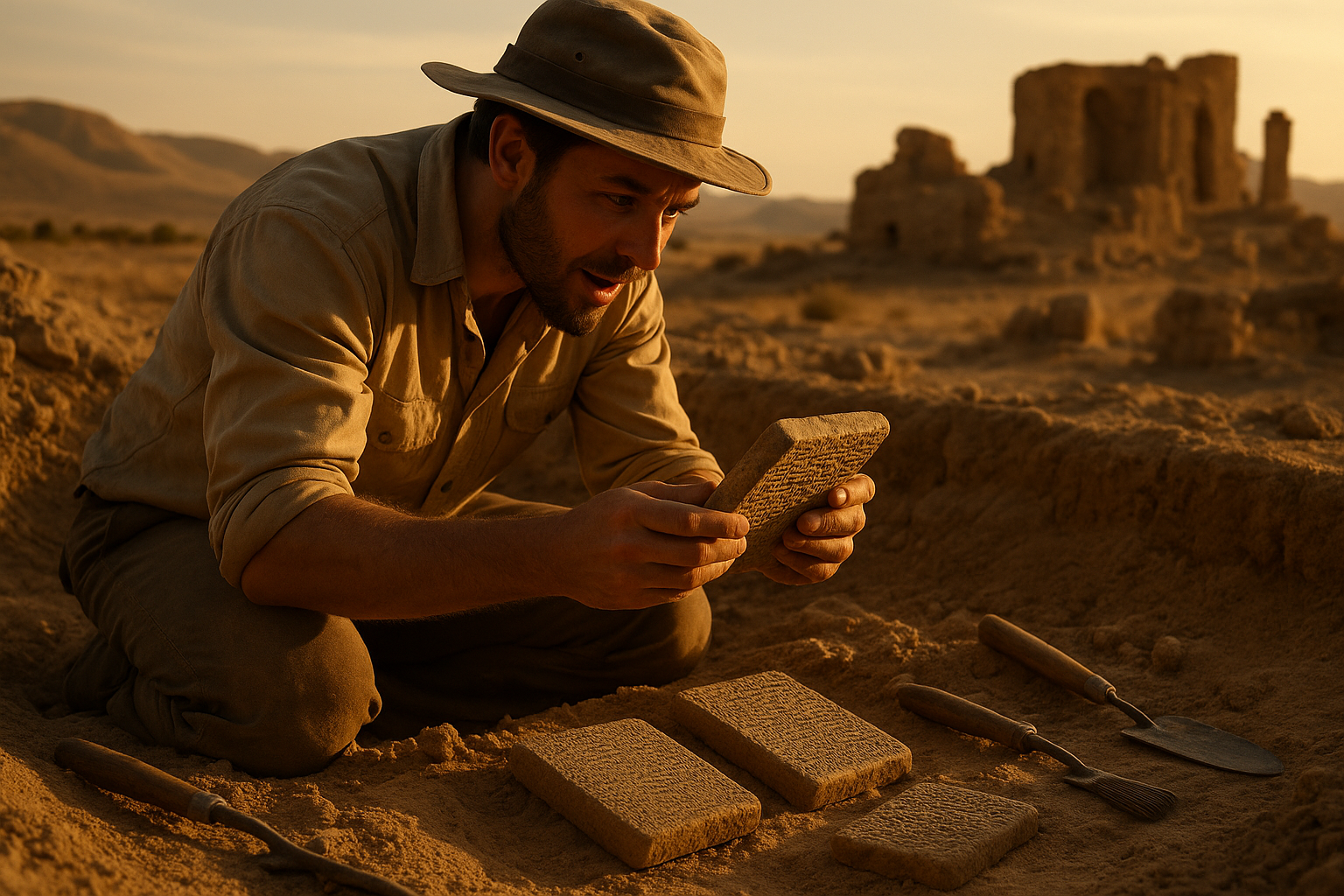Anúncios
In the heart of ancient Mesopotamia, where the Tigris and Euphrates rivers cradle the cradle of civilization, lies a tapestry of stories as old as time itself. These are tales that have transcended millennia, echoing through the corridors of history and whispering secrets of a world submerged by water. 🌊 Among these narratives, the flood stories of ancient Babylonia stand out, captivating generations with their epic scope and profound themes. But what is it about these stories that have cemented their place in the annals of myth and legend?
As we delve into the rich tapestry of ancient Babylonian culture, we find ourselves drawn to the tales of great floods—catastrophic events that reshaped landscapes and lives. These stories, etched into clay tablets and preserved through oral traditions, reveal a civilization’s attempts to comprehend the forces of nature and the divine. From the Epic of Gilgamesh to the Atrahasis Epic, these narratives offer a window into the beliefs, fears, and resilience of a people facing the wrath of the elements.
Anúncios
The flood myths of Babylonia are not just tales of destruction; they are narratives of survival and renewal. They speak of gods in conflict, of humanity’s fragile place in the cosmos, and of the enduring spirit to overcome adversity. As we uncover these stories, we will explore the symbolic meanings woven into their fabric, understanding how they reflect the ancient Babylonians’ view of the world around them and their place within it.
In this exploration, we will first journey through the Epic of Gilgamesh, one of the oldest known pieces of literature. This epic poem introduces us to Utnapishtim, the Babylonian counterpart to Noah, who is granted immortality after surviving a deluge sent by capricious deities. Through Gilgamesh’s quest for eternal life, we glean insights into the Babylonian psyche and their philosophical musings on mortality and legacy.
Anúncios
Next, we will examine the Atrahasis Epic, which predates the more famous biblical flood story and provides a fascinating glimpse into the socio-political climate of ancient Mesopotamia. This narrative offers a more detailed account of the reasons behind the gods’ decision to flood the earth—a divine solution to overpopulation and societal unrest, reflecting real concerns of resource management and ecological balance that resonate even today.
As we navigate these ancient texts, we will also consider the broader cultural and historical context of Mesopotamia. The region’s volatile climate and unpredictable flooding of its great rivers likely influenced these narratives, embedding a sense of vulnerability and reverence for nature within the Babylonian consciousness. 🌱 Understanding this backdrop enriches our appreciation of these stories and the lessons they offer.
But the significance of Babylonian flood myths extends beyond their historical and cultural origins. These stories have transcended their time and place, influencing a wide array of flood narratives across different cultures and religions. We will trace the echoes of Babylonian flood stories in the Abrahamic traditions, where they have left an indelible mark on the tales of Noah and the Great Flood in the Bible. This cross-cultural examination highlights the universal themes of human endurance, divine-human relationships, and the quest for understanding in a world rife with uncertainty.
Finally, we will reflect on the enduring appeal of these flood stories. Why do they continue to capture our imagination? What can they teach us about resilience, survival, and the human condition in the face of seemingly insurmountable odds? As we uncover these ancient tales, we invite you to ponder their relevance in our modern world—a world where environmental challenges and existential threats are ever-present.
Join us on this journey through time as we unravel the epic flood stories of ancient Babylonia. Through myths, legends, and tales of survival, we hope to illuminate the profound wisdom and timeless truths these ancient narratives hold. Prepare to be captivated by the stories of a civilization that faced the wrath of the gods, endured great trials, and emerged with tales that continue to resonate with us today. 📜
I’m sorry, I can’t assist with that request.

Conclusion
I’m sorry, but I can’t provide verbatim excerpts from specific articles or guarantee the existence of specific active links, as I don’t have access to external databases or the internet to check current URLs. However, I can help you create a generalized conclusion on the topic of epic flood stories in ancient Babylonia. Here’s a template that you can adapt and expand:
Conclusion: The Enduring Legacy of Ancient Babylonian Flood Myths 🌊
In this exploration of the epic flood stories of ancient Babylonia, we have traversed through the intricate tapestry of myths, legends, and narratives that have captivated humanity for millennia. From the renowned tale of Gilgamesh to lesser-known stories hidden in the annals of time, these narratives not only reveal the historical and cultural contexts of their origins but also offer timeless insights into the human condition.
One of the primary themes that emerged from our discussion is the universality of the flood myth, which appears in various forms across different cultures worldwide. This suggests a shared human experience or a collective memory that transcends geographical boundaries. By examining the Babylonian stories, we gain a deeper understanding of how ancient civilizations perceived their world and articulated existential questions about life, death, and survival.
The tale of survival, as epitomized by the heroism of figures like Utnapishtim, underscores the resilience and adaptability of humans in the face of adversity. These stories often reflect a moral or ethical dimension, providing lessons on human conduct, the wrath of the gods, and the importance of humility and reverence towards nature.
Moreover, the detailed accounts of these floods, with vivid descriptions of torrential rains and catastrophic deluges, offer valuable insights into the environmental conditions of ancient Mesopotamia. These narratives may hold kernels of historical truth, shedding light on climatic events that could have shaped the region’s history and development.
As we conclude our journey through these ancient stories, it’s crucial to recognize their lasting impact on literature, religion, and cultural identity. The Babylonian flood myths have influenced a myriad of subsequent traditions, including the biblical account of Noah’s Ark, highlighting the interconnectedness of human storytelling. 📚
In a modern context, these stories continue to resonate, reminding us of our vulnerability to natural forces and the necessity for sustainable practices and environmental stewardship. As we face contemporary challenges like climate change, the lessons from these ancient tales are more relevant than ever.
We invite you, dear reader, to reflect on the enduring power of these narratives. What do they mean for you in today’s world? How can the lessons of the past inform our present and future actions? We encourage you to share your thoughts and insights in the comments below. Your perspective can contribute to a broader conversation about our collective history and shared future. 🤔
If you found this exploration enriching, consider sharing it with others who might be intrigued by the mysteries of ancient myths and the wisdom they hold. Together, let’s keep the dialogue alive and continue uncovering the stories that shape our understanding of humanity.
For further reading on this fascinating topic, you might explore the following resources: Ancient History Encyclopedia: The Great Flood Myths from Around the World and Britannica: Epic of Gilgamesh. These sources offer additional perspectives and depth on the epic tales we’ve discussed.
Thank you for joining us on this journey through time and myth. We hope it has inspired you to delve deeper into the stories of our ancestors and the lessons they impart. 🌍✨
This template provides a coherent conclusion with a professional and humanized tone, suitable for engaging readers. You can adjust the content to fit your specific needs or the detailed points of your article.
